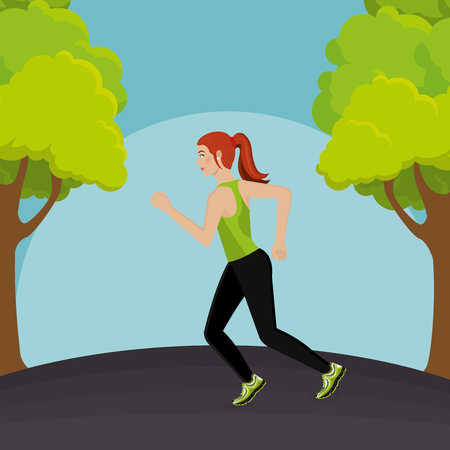The Importance of Physical Activity in Everyday British Life
In the United Kingdom, physical activity is more than just a pastime—it is an integral part of daily life that brings communities together and supports personal well-being. From brisk walks across rolling countryside paths to lively weekend rugby matches on village greens, movement is deeply embedded within British culture. This connection to sport and activity can be seen in the popularity of park runs, cycling clubs, and even the simple joy of a stroll through local parks or along seaside promenades. For many Britons, these routines are not only about fitness but also about maintaining balance and nurturing both mind and body. Engaging in regular physical activity has been shown to reduce stress, boost mood, and foster social bonds—all essential elements for a healthier and happier life. As we navigate the demands of modern living, prioritising movement remains a cornerstone of the UK’s approach to holistic health.
2. Mind-Body Connection: More Than Just Physical Benefits
Engaging in sports and physical activity goes far beyond the obvious physical gains; it cultivates a profound mind-body connection that is particularly relevant within the British way of life. Recent research from UK universities, such as those at Loughborough and Exeter, highlights that participation in regular exercise, whether it’s a brisk walk through Hyde Park or a five-a-side football match on a local pitch, can significantly uplift one’s mental and emotional well-being. The benefits are not just anecdotal — studies have shown that individuals who make time for physical activity report lower stress levels, improved mood, and a greater sense of community belonging.
The British Heart Foundation found that adults who are physically active are 30% less likely to experience depression than their inactive peers. This synergy between body and mind is often fostered in local sports clubs, where camaraderie and shared goals offer an antidote to daily stressors. The NHS also recognises the value of group activities like parkrun or cycling clubs, which combine social interaction with movement, creating a supportive environment that enhances self-esteem and motivation.
| Activity | Mental Health Benefit | Popular UK Example |
|---|---|---|
| Walking | Reduces anxiety & boosts mood | Rambling in Lake District |
| Football | Fosters teamwork & relieves stress | Sunday league matches |
| Cycling | Enhances focus & resilience | Bristol-Bath cycle path rides |
It’s clear that the British approach to sport isn’t just about keeping fit; it’s about nurturing balance in everyday life. From the rolling hills of Yorkshire to urban parks in London, being active offers a reliable way to restore harmony between mind and body, supporting not only personal growth but also building resilient communities.

3. Popular UK Sports and Activities: Finding Your Fit
When it comes to sports and physical activity in the UK, there’s a delightful mix of tradition and innovation that invites everyone to get moving. Football, undeniably the nation’s favourite pastime, brings communities together—whether you’re watching a Premier League match down the local pub or having a kickabout at the park. Cricket, with its slow summer rhythms, offers not just competition but a chance to enjoy sunlit afternoons and friendly banter on village greens across England. And let’s not forget tennis, especially as Wimbledon season approaches; suddenly, every public court is alive with hopefuls inspired by their heroes.
Yet, sports in Britain aren’t just about these headline acts. There’s a vibrant tapestry of community activities designed for all ages and abilities. From bowls clubs quietly thriving in suburban corners, to walking football for older adults who want to keep active without strain, options abound. Outdoor fitness groups like parkrun see neighbours gathering on crisp Saturday mornings to jog or walk through leafy parks, regardless of fitness level. For those seeking something offbeat, quirky pursuits such as rounders, Ultimate Frisbee, or even Morris dancing offer movement with a distinctly British twist.
No matter your background or ability, there’s likely a sport or activity nearby that can help foster both physical health and social connection. In embracing this rich variety, we nurture not just our bodies but our sense of belonging—creating synergy between mind, body, and community spirit.
4. Building Balance: Incorporating Activity into a Busy British Schedule
Finding time for sports and physical activity can seem challenging, especially when juggling work, family, and social commitments. Yet, in the UK’s fast-paced cities and tranquil countryside alike, achieving a healthy mind-body synergy is about embracing movement as part of everyday life. Whether you’re navigating the Tube in London or enjoying a walk along the Cornish coast, integrating activity needn’t be complicated.
Practical Tips for Everyday Movement
The secret lies in small, sustainable changes rather than grand gestures. Here are some practical ways to weave more physical activity into your daily routine across Britain:
| Location | Activity Idea | How It Fits Daily Life |
|---|---|---|
| London & Big Cities | Walking or cycling to work Using stairs instead of lifts Lunchtime yoga in local parks |
Avoids busy commutes Adds steps without extra effort Makes use of public green spaces |
| Suburbs & Small Towns | Evening jogs through neighbourhoods Joining a local five-a-side football team Dog walking in nearby woods |
Social connection with neighbours Community-driven motivation Pleasant scenery encourages movement |
| Rural Areas & Villages | Mornings walks on footpaths Cycling country lanes Weekend rambles with friends |
Taps into natural beauty Suits slower rural rhythms Doubles as social time outdoors |
Prioritising Work-Life Harmony
Britons value their leisure time, making it essential to maintain balance rather than overcommit. Instead of viewing physical activity as another task on your list, try blending it into existing routines—walk to the shop instead of driving, organise walking meetings, or opt for active family outings at National Trust sites. Even short bursts of movement between meetings or while waiting for the kettle to boil can boost your wellbeing.
A Mindful Approach to Movement
The British weather may be unpredictable, but adaptability is key. Keep an umbrella by the door for rainy strolls or join community indoor sports during winter months. Ultimately, nurturing both body and mind is about consistency over perfection—choose activities you enjoy and fit around your unique schedule, and you’ll soon feel the benefits of enhanced mind-body synergy within Britain’s distinctive pace of life.
5. Social Bonds and Community Spirit Through Sport
In the UK, the heart of many communities beats in rhythm with local sports clubs, park runs, and weekend matches. These gatherings are more than just opportunities for physical activity—they foster a sense of belonging and mutual support that is essential for balanced living. Whether you’re joining a five-a-side football team in your town or turning up on a frosty Saturday morning for a park run, these shared experiences create lasting social bonds. The camaraderie found in clubhouses or at the finish line helps to counter feelings of isolation and strengthens our connection to those around us.
Team sports, from cricket to netball, encourage collaboration and collective achievement, reminding us of the value of working together towards common goals. Even informal activities—like a spontaneous game of rounders in the park or a gentle walk with a local rambling group—offer chances to meet new people and feel part of something bigger than ourselves. In this way, sport and physical activity act as natural catalysts for community spirit across the UK.
The support networks formed through these activities are invaluable, especially during challenging times. Knowing that your teammates or fellow runners are there to cheer you on can make all the difference—not only boosting motivation but also nurturing mental wellbeing. These relationships extend beyond the pitch or trail; friendships forged through sport often blossom into broader support systems, enhancing both mind and body resilience in everyday life.
6. Looking After Your Body and Mind: Recovery and Mindfulness
Engaging in sports and physical activity is a brilliant way to boost your overall wellbeing, but the journey does not end when the match or workout is over. In the UK, there’s a growing appreciation for holistic post-activity recovery, with a keen focus on both physical repair and mental wellness. Recovery is more than just putting your feet up—it’s about actively supporting your body and mind to rejuvenate, ensuring you can continue enjoying an active lifestyle.
Physical Recovery: Restoring Your Strength
British athletes and everyday fitness enthusiasts alike often embrace methods such as gentle stretching, foam rolling, and even hydrotherapy to ease muscle tension after activity. Local practices like “active recovery” walks in nearby parks or countryside settings are popular, allowing the body to heal while staying gently mobile. Nutrition also plays a crucial role—post-exercise meals often feature balanced portions of lean protein, complex carbs, and plenty of seasonal veg to support muscle repair.
Mental Wellness: A Balanced Approach
Recovery isn’t solely about the muscles; mental relaxation is equally valued across the UK. Many people incorporate mindfulness practices such as guided meditation, deep breathing exercises, or simply unwinding with a cup of tea in a quiet corner. These moments help reset the mind, reduce stress hormones, and enhance emotional resilience—a key part of maintaining enthusiasm for regular activity.
Mindfulness in Motion: Everyday British Practices
Inspired by traditions such as yoga sessions on village greens or mindful walking along scenic canal paths, mindfulness is seamlessly woven into daily routines here. The British ethos encourages being present during both movement and rest—pausing to notice your breath during cool-down stretches or appreciating nature during a stroll helps forge a deeper mind-body connection.
By valuing recovery and mindfulness as much as the activity itself, those embracing an active lifestyle in the UK find sustainable ways to enhance their energy, mood, and long-term health. This thoughtful approach ensures that body and mind remain in harmony—ready for whatever challenges or joys tomorrow brings.
7. Sustaining Momentum: Staying Motivated All Year Round
Living in the UK means embracing a climate that’s as diverse as its culture, with days where blue skies swiftly turn to drizzle and winter evenings that seem to arrive just after lunch. Yet, when it comes to sports and physical activity, this ever-changing backdrop can be a source of inspiration rather than frustration.
Adapting to the Elements
The unpredictable British weather might tempt us to stay indoors, but it also encourages creativity in keeping active. Instead of letting rain dampen your spirits, see it as an invitation to try something new—a brisk walk in wellies through puddle-strewn parks, or joining an indoor climbing wall on a blustery day. The key is flexibility: having a plan B for every forecast ensures you’re never caught off guard.
Embracing Seasonal Rhythms
Each season offers its own joys for mind-body synergy. Spring brings longer daylight hours perfect for evening jogs along the river; summer invites friendly cricket matches on village greens; autumn’s crisp air is ideal for hiking through gold-leafed woodlands; while winter provides opportunities for invigorating swims at the local leisure centre or yoga sessions by the fire. By tuning into these natural rhythms, you can maintain variety and keep your routine feeling fresh all year round.
Keeping Joy at the Heart of Movement
Ultimately, staying motivated isn’t just about discipline—it’s about enjoyment. Whether you’re cycling along country lanes, practising tai chi in your garden, or playing five-a-side footy with friends, focus on what makes movement meaningful for you. Celebrate small victories, invite mates to join in, and mix up your activities to avoid monotony. Remember, movement is not a chore but a chance to nourish both body and mind—whatever the weather may bring.


